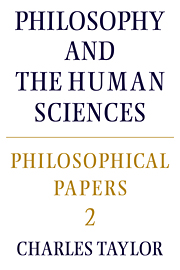11 - The nature and scope of distributive justice
Published online by Cambridge University Press: 05 June 2012
Summary
A vigorous debate is raging today about the nature of distributive justice. But the controversy concerns not only the criteria or standards of justice, what we would have to do or be to be just; it also touches the issue of what kind of good distributive justice is. Indeed, I would argue that as the debate has progressed, it has become clearer that the solution to the first kind of question presupposes some clarification on the second. In any case, recent extremely interesting works by Michael Walzer and Michael Sandel raise fundamental questions in the second range.
I want to take up both issues in this paper. In the first part, I raise questions about the nature of distributive justice. In the second, I want to look at the actual debates about criteria which now divide our societies.
First, what kind of good, or mode of right, is distributive justice? Rawls helps us by giving us a formulation of the circumstances of justice: we have separate human beings who are nevertheless collaborating together in conditions of moderate scarcity. This distinguishes it from other kinds and contexts of good. For instance there is a mode of justice which holds between quite independent human beings, not bound together by any society or collaborative arrangement. If two nomadic tribes meet in the desert, very old and long-standing intuitions about justice tell us that it is wrong (unjust) for one to steal the flocks of the other. The principle here is very simple: we have a right to what we have.
- Type
- Chapter
- Information
- Philosophical Papers , pp. 289 - 317Publisher: Cambridge University PressPrint publication year: 1985
- 17
- Cited by



